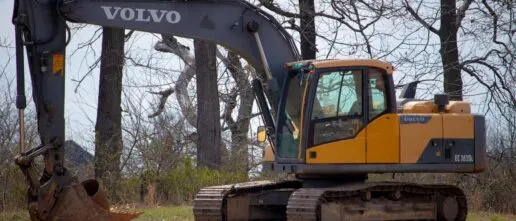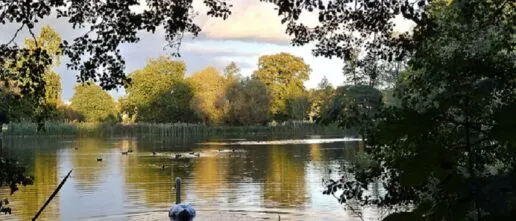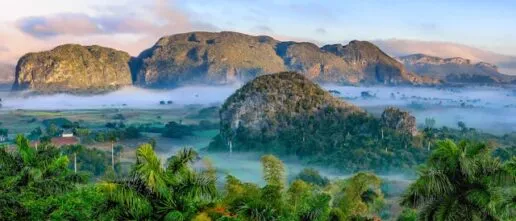About
The emerging proliferation of nature recovery actions need to be coordinated, and the vast amounts of data need to be analysed, in a way that satisfies the wide range of aspirations and values that people and organisations have for nature recovery. We also need to support the delivery of local, national and international ambitions and commitments to nature, health, human rights, food production and climate change mitigation. These commitments have synergies and overlaps, but also trade-offs that need to be exposed and navigated.
To tackle this challenge, we will build an Analysis and Decision Platform that integrates the scientific insights and societal considerations developed though our Ecology and Society Themes, with large and complex data developed through our Scale Theme. State-of-the-art AI tools will help design new approaches for collective decision-making within and across landscapes.
The knowledge system will first be applied and tested in detail in our Case Studies. The system will enable us to connect human insights with multi-scalar datasets to inform local decision making and integrate local outcomes with global drivers and targets. This will allow us to investigate the design features of new forms of collective intelligence and will, thus, become a testbed for governance and finance innovations for nature recovery.
In this theme we will also explore how synergies and conflicts between nature recovery, other social and cultural values, and other development objectives that compete for land (agriculture, urbanisation, infrastructure) can be integrated at different spatial scales. We will also explore how different elements of nature recovery combine and scale, leading to integrated strategies for nature that match local and organisational contexts and goals, building resilience for ecosystems and society, while also contributing to national and international goals.
Related News Articles

New Podcast with EJ Milner-Gulland

Our response to Defra’s consultation on improving the implementation of Biodiversity Net Gain for minor, medium and brownfield development
We raise concerns about the effect that the proposed changes will have on the demand for units on the off-site BNG market, based on research into the outcomes of the off-site market, & highlight the potential for worsening ecological outcomes from the changes proposed to the Small Sites Metric.
Related Projects

NATURE Impacts: National Assessment Tool for Understanding Relative Environmental Impacts
A forward-looking tool to track global progress, prioritise national action, and maximise impact for nature recovery

Coordinating Research Around Biodiversity Net Gain
At its heart, BNG frames a challenging question: in a world where new housing, workplaces and other land use needs are deemed essential; is it possible to provide this infrastructure without Nature bearing the brunt of the costs?

Pioneering Nature-Positive Pathways: Organisational Approaches for delivering Nature Recovery
Understanding the methods and actions required by large organisations to deliver effective and equitable biodiversity outcomes in line with achieving global nature recovery goals.

Rethinking the role of state institutions in nature recovery
In England there has been a long-term trend towards the retrenchment of direct state spending and the role of government in nature conservation policy – what could an alternative vision for the state look like?

Extension service provision facilitating landscape-scale nature recovery
Examining the role of farm advisors in the adoption of environmental land management practices

Assessing urban ecosystem composition and function to understand pathways towards equitable, Nature-smart cities
Through considering the ecosystem composition and functioning of Greater London, I hope to provide not only a comprehensive analysis of nature of in cities as it currently stands, but I also hope to provide routes to improving nature in these areas based on this.

An Aspirational Approach to Planetary Futures
Researchers the Center join the United Nations Development Programme to propose an optimistic, practical approach to inspire stronger action on nature.

Designing effective Nature Restoration Funds in theory and practice
Collating the evidence from theory and nature restoration funds around the world to inform the next generation of conservation compensation funds
Related Outputs
Improving the ecological outcomes of compensatory conservation by addressing governance gaps: a case study of Biodiversity Net Gain in England
Biodiversity compensation policies have emerged around the world to address the ecological harms of infrastructure expansion, but they have historically experienced weak compliance. The English government is introducing a requirement that all new infrastructure developments demonstrate they achieve a Biodiversity Net Gain (BNG). Previous research has highlighted governance gaps that risk undermining the policy’s ecological […]
The current state, opportunities and challenges for upscaling private investment in biodiversity in Europe
European countries have committed to ambitious upscaling of privately funded nature conservation. We review the status and drivers of biodiversity finance in Europe. By implementing semistructured interviews with 25 biodiversity finance key informants and three focus groups across Europe, we explore opportunities and challenges for upscaling private investment in nature. Opportunities arise from macroeconomic and […]
An aspirational approach to planetary futures
A new paper in Nature Prevailing frameworks to address planetary environmental challenges tend to focus on setting goals, targets, or boundaries to limit human harm to ecosystems or species. Here we propose an aspirational approach aimed at empowering people to shape a better future for all of life on Earth.
The UK nature finance ecosystem: status and opportunities for scale
This report reviews the current state of nature finance in the UK, the ecosystem of actors involved and the enabling environment to scale finance, including the role of blended finance. The report acts as a primer to inform future research toward policy recommendations.
A compass toward a thriving and resilient Oxfordshire, the Oxfordshire Doughnut project, final report to Oxfordshire County Council
This report represents the first steps toward an Oxfordshire re-imagining economics to serve thriving futures - a future where the needs of all citizens are met
Alternative Life Cycle Impact Assessment Methods for Biodiversity Footprinting Could Motivate Different Strategic Priorities: A Case Study for a Dutch Dairy Multinational
To design effective biodiversity strategies, corporations must address uncertainties in biodiversity footprinting methods, and further research is needed to ensure these methodologies drive effective action to combat global biodiversity loss.
Assessing the implications of a ‘Net Zero’ strategy for biodiversity
Climate change and biodiversity loss are closely linked crises. ‘Net Zero’ and ‘Nature Positive’ have emerged as frameworks for organisations to contribute towards societal climate and biodiversity goals.
Navigating uncertainty in LCA-based approaches to biodiversity footprinting
The use of Life cycle assessment (LCA) methods is rapidly expanding as a means of estimating the biodiversity impacts of organisations across complex value chains. However, these methods have limitations and substantial uncertainties, which are rarely communicated in the results of LCAs. Drawing upon the ecological and LCA literature on uncertainty and two worked examples […]
Consultation response: a biodiversity metric for Scotland’s planning system
This response highlights how a biodiversity metric could support Scotland’s unique habitats and nature. It brings together evidence from the application of a statutory biodiversity metric in England to recommend a revised approach for a Scottish context. It draws on evidence from across the Leverhulme Centre for Nature Recovery’s research community.
Leading from the front. The Role of the Public Sector in Delivering Nature Recovery
This report sets out an expert opinion on how Government should approach the issues of funding and financing nature recovery in England. The research takes as its starting point the essential importance of nature recovery and the headwinds so far experienced in achieving it. Taking account of the growing expectation that new nature markets will […]
